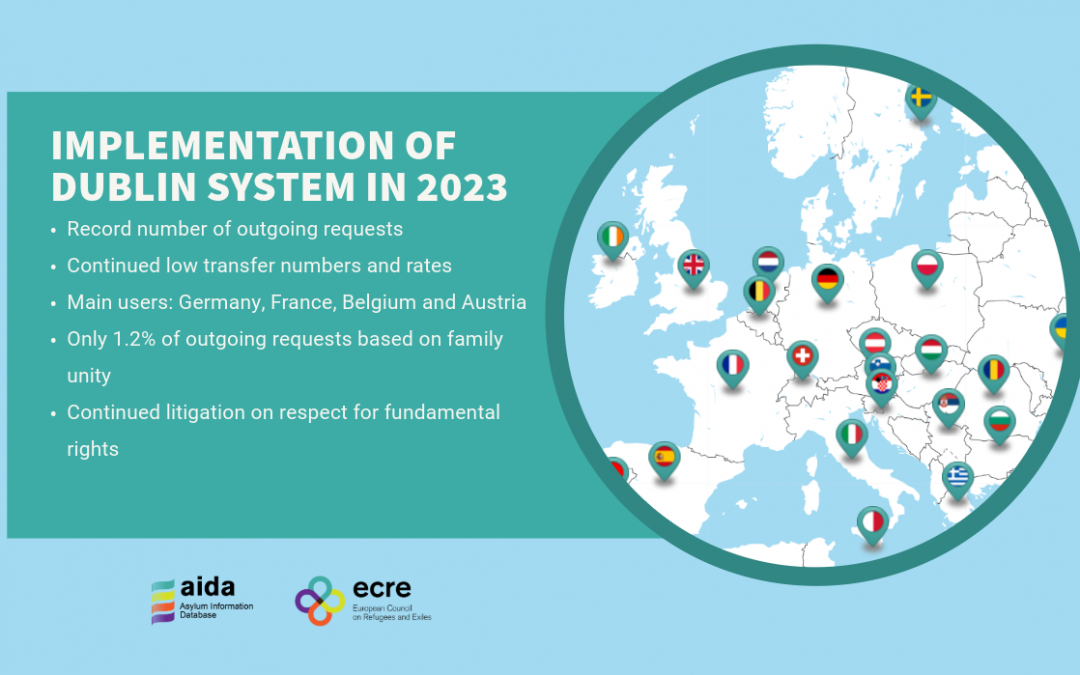The latest AIDA statistical update provides an update on developments in legislation, policy and practice relating to the implementation of the Dublin III Regulation in 2023, and an overview of case law on the suspension of Dublin transfers.
It includes the following key findings:
- Record number of outgoing requests: Dublin countries sent a record number of outgoing requests in 2023 (193,971 decisions taken on 201,868 outgoing requests).
- Main users: Germany and France: Germany and France continued to be the main users of the Dublin system in 2023. Together they accounted for 64% of total outgoing requests.
- Continued low transfer numbers and rates: The number and rate of transfers that were actually carried out remained low in 2023 (18,919 outgoing transfers (9%)). Of the 29 countries for which data was available, 20 registered a transfer rate of 30% or below, and three registered a transfer rate of less than 1%. In addition, the transfer rates for the top four users of the Dublin system in 2023 were all less than 10%: Germany, (7%), France (5%), Belgium (9%) and Austria (9%).
- Prevalence of “take-back” requests: 68% of the requests that were sent in 2023 were “take-back” requests (i.e. concerning people who had already lodged an asylum application in another Dublin country).
- Very limited use of family provisions: Only 1.2% of the outgoing requests that were sent in 2023 were based on the criteria related to family unity and the best interests of the child. This was despite the fact that these provisions are at the top of the hierarchy of responsibility and should therefore have been prioritised.
- Continued litigation on respect for fundamental rights: Dublin procedures remained a major source of asylum litigation in Europe in 2023, before both domestic and European courts. However, jurisprudence continued to be inconsistent between and sometimes within countries regarding blocking transfers to certain partner countries for reasons related to respect for fundamental rights, including the existence of systemic deficiencies.
The latest statistical update is available here and previous updates can be found on the AIDA website.

